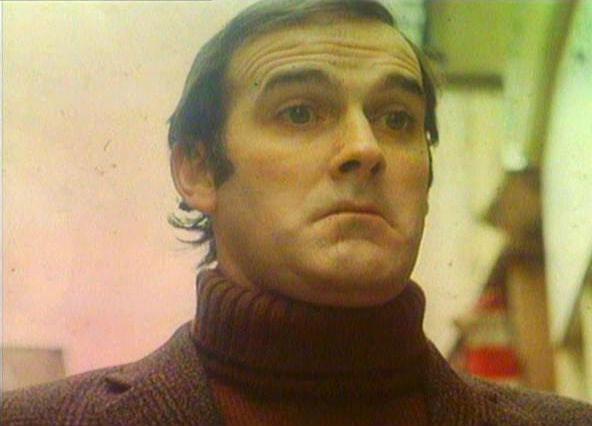Say the name “Netanyahu”, and you’ll feel a shudder of future-lessness go through your entire being. Peace process? No future. Shalit deal? No future. Cost of living? Definitely none. Like all leaders, Israel’s prime minister likes to rave about his success in advancing the country’s economy. The recent tent protests sweeping the country show precisely which Israelis are enjoying this progress and which are not: the top one percent, the elite of society does – et c’est tout. Members of the middle class, from left to right, are motivated to camp out, march and chant against the government. This is what future-less folk do, and if these guys worry for the future, just think how the working class must feel. Today’s Channel 2 poll shows that 92 percent of the public support the struggle.
A government may pretend that future is a difficult commodity to come by, that it does not spring by itself from stubborn soil. It may demand patience from the public, but will thus betray its responsibility because this is exactly the definition of this responsibility: It must above all provide the people with a sense that it has a future.
Our situation as Israelis is currently comparable to that of the costumer in Monty Python’s sketch, who walks into a cheese shop intent on buying cheese, only to discover that the shop is utterly bereft of cheese. The shopkeeper does not reveal this upfront, but instead lets his customer go through an endless list of cheeses.
In a similar manner, protesters in Israel’s newly sprung tent cities and weekly-held rallies list the types of future they demand: a future for our hospitals, a future for our schools, even a future for our milk industry (no pun intended: Today saw a huge rally of dairy farmers in Tel Aviv. They protested Netanyahu’s decision to open the milk and cheese market to imports as a response to public outcry about overpriced cottage cheese).
Netanyahu’s response to all demands is more privatization and less regulation, both of which are the causes of the current turmoil. It’s disheartening to see him claim again and again, as the cheese shop owner does, that the establishment he runs is “the finest in the district,” without providing any of the cheesy comestibles. He just can’t help it. He owes so much already to the tycoons controlling Israel’s economy, that he literally initiated and promoted a controversial law which would exacerbate the housing problem further. The law passed today, infuriating the protesters, and a new rally was instantly scheduled for Saturday night. It is set to be the biggest to date.
Every government runs a future shop, and the people are both its owners and its clientele. We more than deserve to approach our current leadership and demand different kinds of future: a personal future (i.e. a chance for growth for the individual and family), a national future (i.e. some prospect of regional peace), or a future for the specific group in society to which we relate. We are already conscious that none of that is on the shelves. What are we to do? I naturally do not subscribe to John Cleese’s choice of assassinating the shopkeeper, but this future shop’s management should definitely be sacked and a boycott on their nonexistent Gruyere is a good place to start.
Licensed for public warfare
It will take more than a boycott, more than camping in the streets and rallying. Netanyahu is clever and has no shortage of rabbits to pull out of his hat. The sign over the cheese shop’s doorway in the sketch says it is “licensed for public dancing.” Two bowler-hatted gentlemen indeed dance to Greek music in the shop’s interior, gradually driving Cleese out of his calm.
Our leadership has been offering us, in place of a future, many fancy dances: the dance of the anti-democracy law; the dance of settlement construction; and even, since everything seems to boil down to milk these days, the dance of bullying women into breastfeeding. This country is licensed for public warfare, and Netanyahu’s government is prone to do whatever it can to deteriorate the regional situation and produce the ultimate diversion of the public’s attention. Last week’s assassination attempt on Sheikh Hassan Nasrallah in Beirut is very likely to have been motivated by that.
Just as customer Cleese does not say “the heck with it,” give up on the cheese and join the dance, so do the protesters make a point of ignoring anything that doesn’t smell of future. The 20-somethings who make up the majority of tent dwellers have come to the age at which the future becomes interesting, only to find that it is not available. They will not easily be led off target, since nothing is more precious at this point.
This protests hold in themselves the seed of a future, of many futures. A guiding line for true change is apparent in the debates held in the tent cities, which manifest new patterns of democracy that a future Israel may adopt. It is apparent in the links protesters make between social, economic and environmental issues and even in the very optimism of the revolutionary tide.
The future-shop shopkeeper himself has a stash of future hidden in the back room for personal use. Unlike the protesters, who cannot afford Israel’s prohibitive rents, Netanyahu owns at least two luxury properties, both of which he prefers to the official prime minister’s residence. He must believe his political power to be secure as well. An act like today’s scandalous legislation, besides fitting with his ideology, sends a message to the tycoons. It assures them that the protests do not sway Netanyahu and that they still have their man in power.
There can only be one reason for Netnayahu apparent political suicide: He firmly believes that the future the for which the protesters call will never come. It’s up to us to prove him gravely mistaken.
.
[youtube]http://www.youtube.com/watch?v=B3KBuQHHKx0[/youtube]


